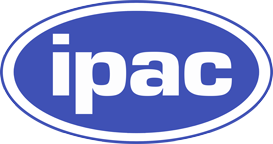Code of conduct
The organizers are committed to making this meeting productive and enjoyable for everyone, regardless of gender, sexual orientation, disability, physical appearance, body size, race, national origin or religion. We will not tolerate harassment of participants in any form. Please review this code of conduct before registering for this conference.
Please follow these guidelines:
Behave professionally. Harassment, sexist, racist, or exclusionary comments or jokes are not appropriate. Harassment includes sustained disruption of talks or other events, inappropriate physical contact, sexual attention or innuendo, deliberate intimidation, stalking, and photography or recording of an individual without consent. It also includes offensive comments directed towards an individual or group.
All communication should be appropriate for a professional audience including people of many different backgrounds. Sexual language and imagery is not appropriate. Be kind to others. Do not insult or put down other attendees. Critique ideas, not people.
If participants wish to share photos or contents of talks/slides of any attendee or speaker on social media, we ask that they first get permission.
Participants asked to stop any inappropriate behavior are expected to comply immediately. Attendees violating these rules may be asked to leave the event at the sole discretion of the organizers.
Any participant who wishes to report a violation of this policy is asked to speak, in confidence, to any member of the LOC, or report anonymously from the conference website ("Feedback" tab).
This code of conduct is based on the "London Code of Conduct", as originally designed for the conference "Accurate Astrophysics. Correct Cosmology", held in London in July 2015. The London Code of Conduct was adapted with permission by Andrew Pontzen and Hiranya Peiris from a document by Software Carpentry, which itself derives from original Creative Commons documents by PyCon and Geek Feminism.
Our code of conduct aligns with the principles outlined in NASA’s guidelines, which can be found at: https://pcos.gsfc.nasa.gov/docs/NASA-Astrophysics-Statement-of-Principles-Nov2022.pdf
